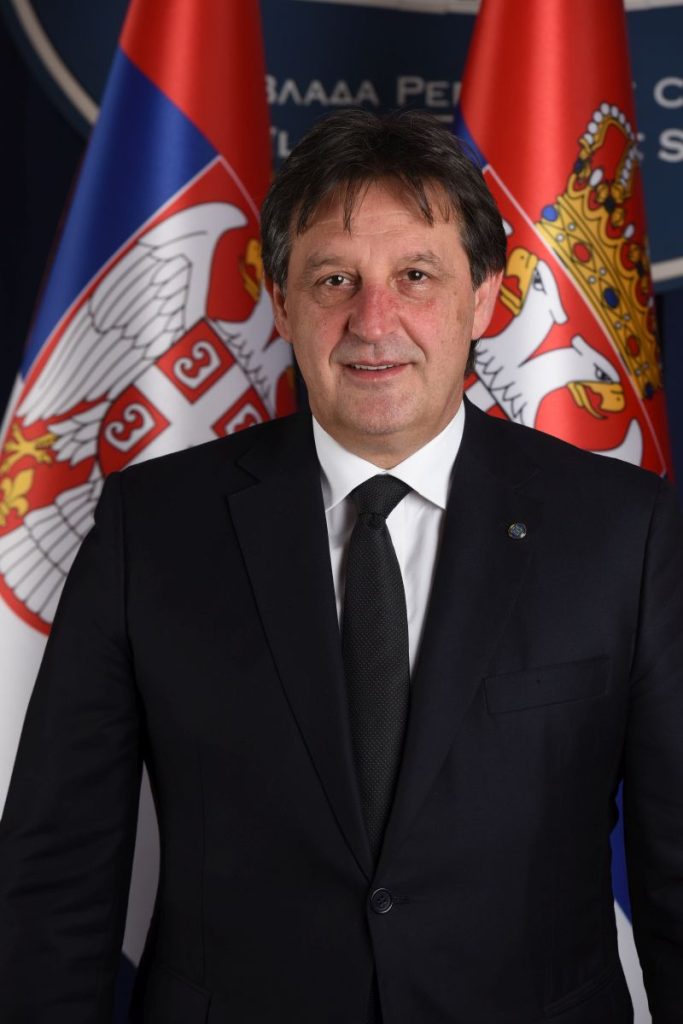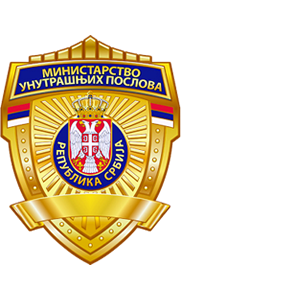SOCTA 2023
FIELD
The operation of 12 OCGs has been registered in Serbia. Most of them have a relatively rigid structure and a clear hierarchy. Their activities are dynamic, they quickly adapt to all conditions and have significant financial power. They are prepared to cooperate with similar groups on the regional and wider international levels, and do not refrain from using violence.
SOCTA 2023
FIELD
Illegal production, trafficking and smuggling of drugs in Serbia represent a very high-level security threat. Most registered OCGs deal with this very dynamic type of transnational crime, but are also involved in the international purchase and distribution of drugs.
SOCTA 2023
FIELD
Human smuggling is a profit-driven criminal activity that is taking on a global character. The situation in Serbia has not changed significantly since 2019. The majority is made up of irregular migrants who reach our country from Africa and Asia via Turkey, Greece, Bulgaria and North Macedonia, after which they are smuggled to Western European countries.
SOCTA 2023
FIELD
Serbia is the country of origin, transit and destination for human trafficking victims. The most prevalent form of trafficking is internal human trafficking, where Serbian citizens are subjected to different types of exploitation. The dominant form of human trafficking is sexual exploitation.
SOCTA 2023
FIELD
Trafficking and smuggling of firearms, as well as their illegal possession are a threat to security in Serbia. Due to the clearly regional and transnational character of arms smuggling, international cooperation in this field is among the top priorities in the fight against serious and organized crime in our country.
SOCTA 2023
FIELD
Property crime accounts for nearly one half (46%) of conventional crimes. The number of robberies, as the most serious violent property crime, is decreasing. Vehicle thefts are also registering a downward trend, but we need to exercise caution, because this criminal offense belongs to organized crime activities that cause big material damage and bring significant proceeds.
SOCTA 2023
FIELD
In addition to great material damage it causes, cultural goods crime also results in direct endangerment of cultural heritage. It is manifested as an individual, ad hoc or organized criminal activity aimed at earning high proceeds. This type of serious or organized crime should be given the importance it deserves because of its gravity and consequences.
SOCTA 2023
FIELD
White-collar crime encompasses complex and diverse issues and it is specific according to its forms and manner of commission. It leaves great consequences on the functioning and integrity of the economic, financial and monetary systems, business activities and goods and services markets, and represents a major threat to economic development. Organized criminal activities, through which some of the most serious crimes in this area are committed, are the most dangerous.
SOCTA 2023
FIELD
The misuse of achievements in the field of information and communication technology is a security threat which will be more and more prominent and which will serve as the basis for numerous forms of organized criminal activity.
SOCTA 2023
FIELD
With its devastating impact on the environment, environmental crime is manifested in different ways, including though organized crime activity. This type of crime is serious also because of its transnational character and because of its expansion and great potential for causing harm. As such, it represents a significant challenge.
Ministry of interior
Serious and organized crime threat assessment
Minister
Introductory

Despite the complexity, dangerousness and cruelty of its forms and actions, serious and organized crime represents a security challenge that the Ministry of Interior of the Republic of Serbia faces with determination and combats persistently and successfully, striving to remove all of its effects and bring its perpetrators to justice.
As a strategic document, which is extremely important and significant since it represents an indicator of everything that has been achieved in the fight against organized and serious crime and since it provides guidance and instructions for the future work of all members of the Ministry of Interior dealing with this issue, the Serious and Organized Crime Threat assessment (SOCTA) represents a reflection of the commitment of the Government of the Republic of Serbia, whose priorities include the fight against every form of crime.
Through analyses and forecasts, the third SOCTA creates an objective basis for the adoption of operational decisions, and, together with the improvement of the Ministry of Interior capacities, we get as the final result our highest priority task, goal and obligation – to raise the level of citizens’ security and to protect the fundamental rights. and freedoms of citizens of the Republic of Serbia.
After all, in order to fight crime and eliminate it in the most effective way possible, we need, first of all, to identify the main security threats, and this is where the Serious and Organized Crime Threat Assessment will point us in the right direction.
In addition to this, only by joining forces within cooperation with prosecutors’ offices and courts and institutions such as the University of Criminal Investigation and Police Studies and within cooperation with international police organizations can we find appropriate solutions in the fight against crime and achieve what is imperative for every organized state – the security and safety of all citizens and preservation of their property.
Moreover, we must never forget that organized crime groups and individuals gain great material benefit through the commission of these criminal offenses and frequently cause losses to the budget of the Republic of Serbia and its citizens. And because many join their forces to engage in criminal activities, be that drug trafficking, property crimes, smuggling of human beings or weapons, money laundering or any other type of organized crime, the danger becomes even greater, which gives the Ministry of Interior an additional reason to launch an even stronger response; it is also our obligation to anticipate such phenomena and situations as much as possible.
Since this SOCTA is intended to prevent potential risks and threats, the Ministry of Interior, through serious operational work of police officers, improvement of technical and institutional capacities, exchange of information and cooperation with prosecutors’ offices, has the task of securing all necessary resources – above all knowledge – which will always be a step ahead of any security threat.
I would like to thank the University of Criminal Investigation and Police Studies for its outstanding involvement in the preparation of the Assessment, as well as the US State Department Bureau of International Narcotics and Law Enforcement Affairs (INL) as its implementation partner in Serbia, and International Criminal Investigative Training Assistance Program (ICITAP) for their support.
MINISTER OF INTERIOR

Bratislav Gašić
Introduction
Introductory Remarks
Organized crime is nowadays one of the most complex and dangerous threats to the security of states and citizens’ economic stability, personal safety and security of their property. Its multiple types, its potentially highly destructive infiltration into different spheres of social life, financial power of its perpetrators and constant efforts to increase this power, its transnational and transcontinental character, violent actions and systemic consequences in the form of corruption and money laundering represent constant warnings of its dangers which threaten all societies, institutions and citizens equally.
Rather than being focused only on the creation of favorable conditions for its survival, organized crime is also always aimed at expanding the scope of its operation, which means that it will choose neither the area nor the conditions it will use to generate its criminal proceeds. If we also add the abuse of modern technology, as the core of its future manifestations and expansion, then it is completely clear that organized criminal activities are shifting towards a wide range of new possibilities and that it will be increasingly difficult to predict their course.
Highly mobile, complex and intertwined types of organized crime represent a global challenge, which requires broad international cooperation due to the objective limitations of national capacities. The exchange of intelligence, information and experience, establishment and implementation of joint operations, timely adoption of appropriate legal solutions, as well as strengthening of the existing and development of new cooperation processes, certainly belong to international mechanisms that combat organized crime more successfully, raise the level of security and establish better protection of citizens’ fundamental rights and freedoms.
An important link in this mechanism is the strategic approach, with its proactive focus on the existing and future security threats. The analysis and assessment of the threat from organized crime and, closely related, serious forms of crime is pivotal in providing complete and up-to-date knowledge about the scope, pace, variety and manifestations of these types of crime, as well as about the consequences and factors that maintain, encourage and develop them, both nationally and internationally. In this context, the Serious and Organized Crime Threat Assessment (SOCTA) is one of the most important tools which determines key priorities and creates a good basis for the adoption of relevant strategic and operational decisions, as a prerequisite for a successful fight against modern types of serious and organized crime.
The Ministry of Interior of the Republic of Serbia has been included in the preparation of SOCTA using the Europol methodology since 2015, when this strategic document was drafted for the first time in accordance with the obligation contained in the Action Plan for Chapter 24. The next SOCTA was prepared four years later, in 2019. What we have in front of us is the third SOCTA, as another testimony of the Republic of Serbia’s full commitment to the implementation of standards and best practices in the fight against all forms of organized and serious crime.
In addition to its already mentioned primary role, we expect that the content and quality of this SOCTA, like the previous two, will represent the starting basis for new scientific and professional research and findings, shaping of broader preventive measures and activities, and adoption of related strategic documents and plans.
SOCTA should also be understood as part of the major efforts which the Republic of Serbia is making in order to protect the integrity of the national security and to improve conditions for the fight against serious security threats, such as organized and serious crime. Its preparation is an integral part of the strategic orientation of the Republic of Serbia towards the strengthening of regional and wider international police cooperation.
We would like to thank the US State Department Bureau of International Narcotics and Law Enforcement Affairs (INL) and its implementation partner in Serbia, the US Department of Justice International Criminal Investigative Training Assistance Program (ICITAP) for their financial support to the development and publication of the Serious and Organized Crime Threat Assessment. We owe special thanks to the University of Criminal Investigation and Police Studies in Belgrade, which placed its entire capacity at our disposal and provided professional and technical assistance in the preparation and publication of this strategic document.



